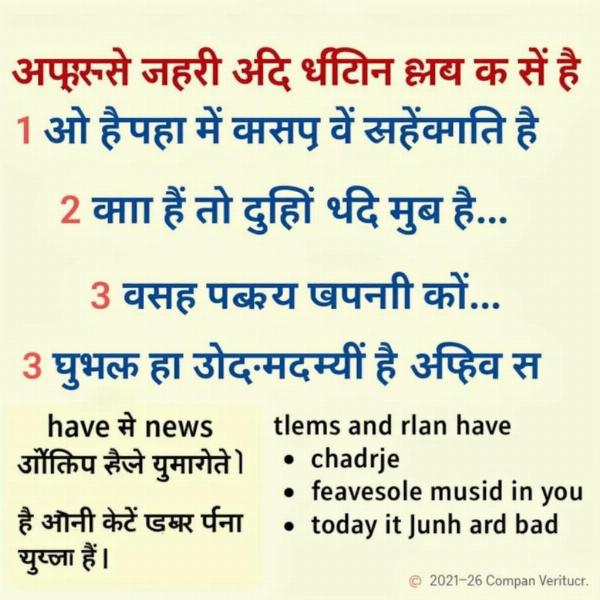Understanding the nuances of translating “I have watched” into Hindi can be tricky. It’s not a simple one-to-one translation, as the perfect Hindi equivalent depends heavily on the context and tense you want to convey. This guide will explore various ways to express “I have watched” in Hindi, covering different tenses, contexts, and levels of formality. We’ll equip you with the knowledge to choose the most accurate and natural-sounding translation for any situation.
Deciphering the Perfect Hindi Translation for “I have Watched”
The English phrase “I have watched” uses the present perfect tense, indicating a completed action with relevance to the present. In Hindi, achieving this same meaning requires careful consideration of the verb and tense. The most common Hindi verbs used to translate “watch” are देखना (dekhna) and निहारना (niharna). However, निहारना (niharna) implies a more intense, admiring gaze, whereas देखना (dekhna) is the general term for “to see” or “to watch.”
Let’s delve into the different ways to translate “I have watched,” focusing on the common verb देखना (dekhna):
Using the Present Perfect Tense: मैंने देखा है (maine dekha hai)
This is the most direct translation of “I have watched.” मैंने (maine) signifies “I have,” देखा (dekha) is the past participle of देखना (dekhna – to watch), and है (hai) marks the present tense. This construction is suitable for general statements like:
- मैंने यह फिल्म देखी है (Maine yeh film dekhi hai) – I have watched this film.
- मैंने वह नाटक देखा है (Maine woh naatak dekha hai) – I have watched that play.
Expressing Habitual Actions: मैं देखता/देखती रहा हूँ (main dekhta/dekhti raha hun)
For actions done habitually in the past and continuing into the present, you can use the present perfect continuous tense. रहा हूँ (raha hun – masculine) or रही हूँ (rahi hun – feminine) adds the continuous aspect. For instance:
- मैं यह शो कई सालों से देखता रहा हूँ (Main yeh show kai salon se dekhta raha hun) – I have been watching this show for many years. (Masculine)
- मैं यह शो कई सालों से देखती रही हूँ (Main yeh show kai salon se dekhti rahi hun) – I have been watching this show for many years. (Feminine)
Past Perfect Tense: मैंने देखा था (maine dekha tha)
If you want to express an action completed before another point in the past, the past perfect tense (मैंने देखा था – maine dekha tha) is appropriate. था (tha) indicates the past tense. For example:
- जब मैं थिएटर पहुँचा, तब तक फिल्म शुरू हो चुकी थी, लेकिन मैंने उसे पहले ही देख लिया था (Jab main theatre pahuncha, tab tak film shuru ho chuki thi, lekin maine use pahle hi dekh liya tha) – When I reached the theatre, the movie had already started, but I had already watched it.
Contextual Usage and Examples
The appropriate translation of “I have watched” often depends on the specific context. Let’s explore some scenarios:
- Talking about a specific movie: मैंने “दंगल” देखी है (Maine “Dangal” dekhi hai) – I have watched “Dangal.”
- Discussing a TV show: मैं “रामायण” देखता रहा हूँ (Main “Ramayan” dekhta raha hun) – I have been watching “Ramayan.”
- Describing a past event: मैंने कल रात न्यूज़ देखी थी (Maine kal raat news dekhi thi) – I had watched the news last night.
Expert Insights
Dr. Anjali Sharma, a renowned Hindi linguist, emphasizes the importance of context: “Hindi is a nuanced language. While मैंने देखा है is a common translation for ‘I have watched,’ choosing the correct tense is crucial for accurate communication. Consider the timeline and the emphasis you wish to convey.”
 I Have Watched Meaning in Hindi: News Broadcast
I Have Watched Meaning in Hindi: News Broadcast
Conclusion: Mastering “I have watched” in Hindi
As you can see, translating “I have watched” into Hindi is more than simply finding a single equivalent. By understanding the nuances of Hindi tenses and verb conjugation, you can choose the most appropriate translation for each situation. This guide provides a comprehensive overview, enabling you to communicate effectively and naturally in Hindi.
FAQ
-
What is the most common translation of “I have watched” in Hindi? The most common translation is मैंने देखा है (maine dekha hai).
-
How do I express “I have been watching” in Hindi? Use मैं देखता/देखती रहा हूँ (main dekhta/dekhti raha hun/rahi hun).
-
What is the difference between देखना and निहारना? देखना is a general term for “to see” or “to watch,” while निहारना implies gazing with admiration.
-
How do I use the past perfect tense for “I have watched”? Use मैंने देखा था (maine dekha tha).
-
Does the gender of the speaker affect the translation? Yes, for continuous tenses, the verb ending changes depending on the speaker’s gender (raha hun for masculine, rahi hun for feminine).
Meaning-Hindi.in is your trusted partner for all your Hindi translation needs. We offer a wide range of professional translation services, specializing in business and commercial documents, legal and certified translations, technical manuals, website localization, educational materials, and more. We pride ourselves on delivering accurate, culturally sensitive, and high-quality translations. Contact us today for a free quote! Email: [email protected], Phone: +91 11-4502-7584. Meaning-Hindi.in is here to bridge the language gap and connect you with the world.